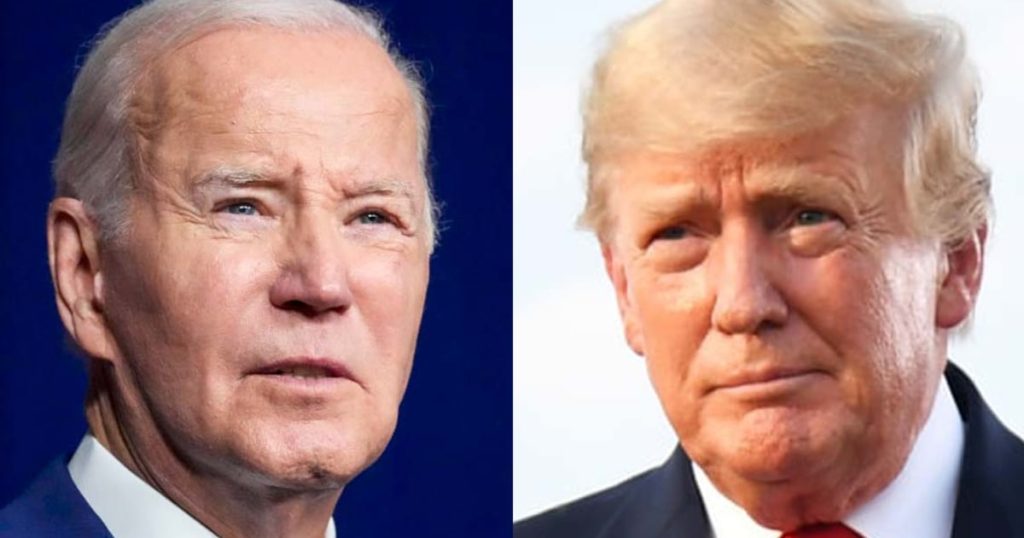Former President Donald Trump is calling for head-to-head debates with President Joe Biden, even going so far as to place an empty lectern on stage to represent where Biden could stand. This visual aid emphasized Trump’s charge that Biden is afraid to meet him one-on-one. However, the possibility of a televised debate between the two major-party nominees is in question, as independent candidate Robert F. Kennedy Jr. is causing consternation for both campaigns due to his rising popularity in national polls.
The lack of public discussion about debates since Trump and Biden secured their party nominations last month has fueled speculation about whether there will be any debates at all. Trump has expressed eagerness to debate Biden, despite skipping the Republican primary debates this election. Biden has indicated that a decision on debates will be made later this year, with his campaign questioning Trump’s sincerity and motives behind calling for debates now.
The Commission on Presidential Debates, responsible for selecting venues and negotiating rules with the campaigns, has not provided any information about this year’s planned forums. With Kennedy gaining traction in the national polls and causing concern for both major-party nominees, the question of whether debates will occur remains unanswered. Both Trump and Biden’s campaigns are considering the potential inclusion of Kennedy in any debates that may take place.
Kennedy, known for his involvement in the anti-vaccine movement, has welcomed his inclusion in the national discourse and has accused Biden of threatening democratic values. Trump has attacked Kennedy for his progressive policies on the environment, framing him as a threat to Biden’s chances of winning votes. The debate commission had previously selected dates and sites for three presidential debates and one vice presidential debate, but the future of these events is uncertain.
Regardless of who sanctions the debates, their importance for the public cannot be overstated, particularly in an election where many voters are undecided and find fault with both major-party candidates. The potential absence of televised debates, a tradition dating back to the 1960 race between Richard Nixon and John F. Kennedy, could have serious political consequences. A debate-less election would be seen as a catastrophic mistake by voters and could lead to a backlash against the candidates involved.


